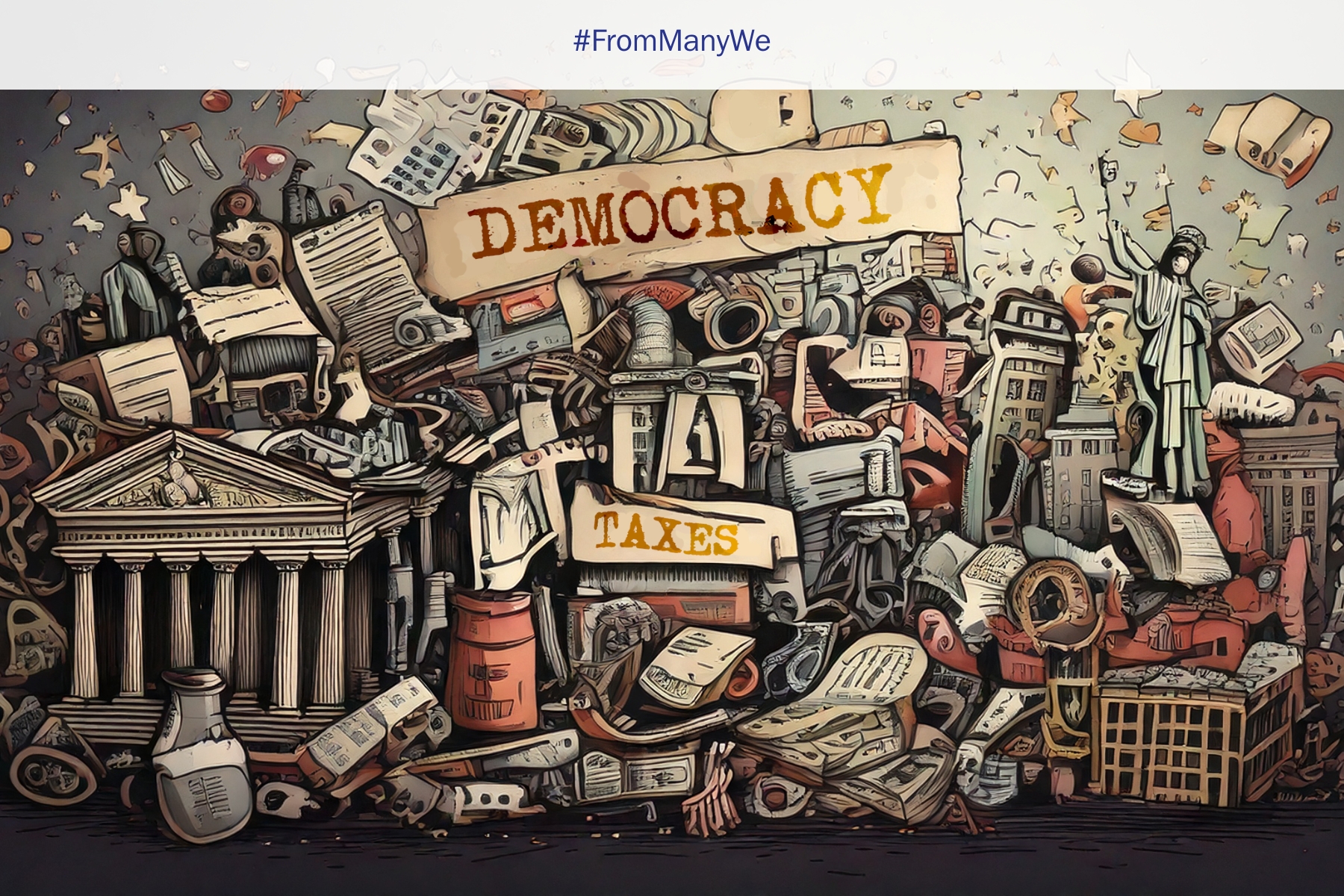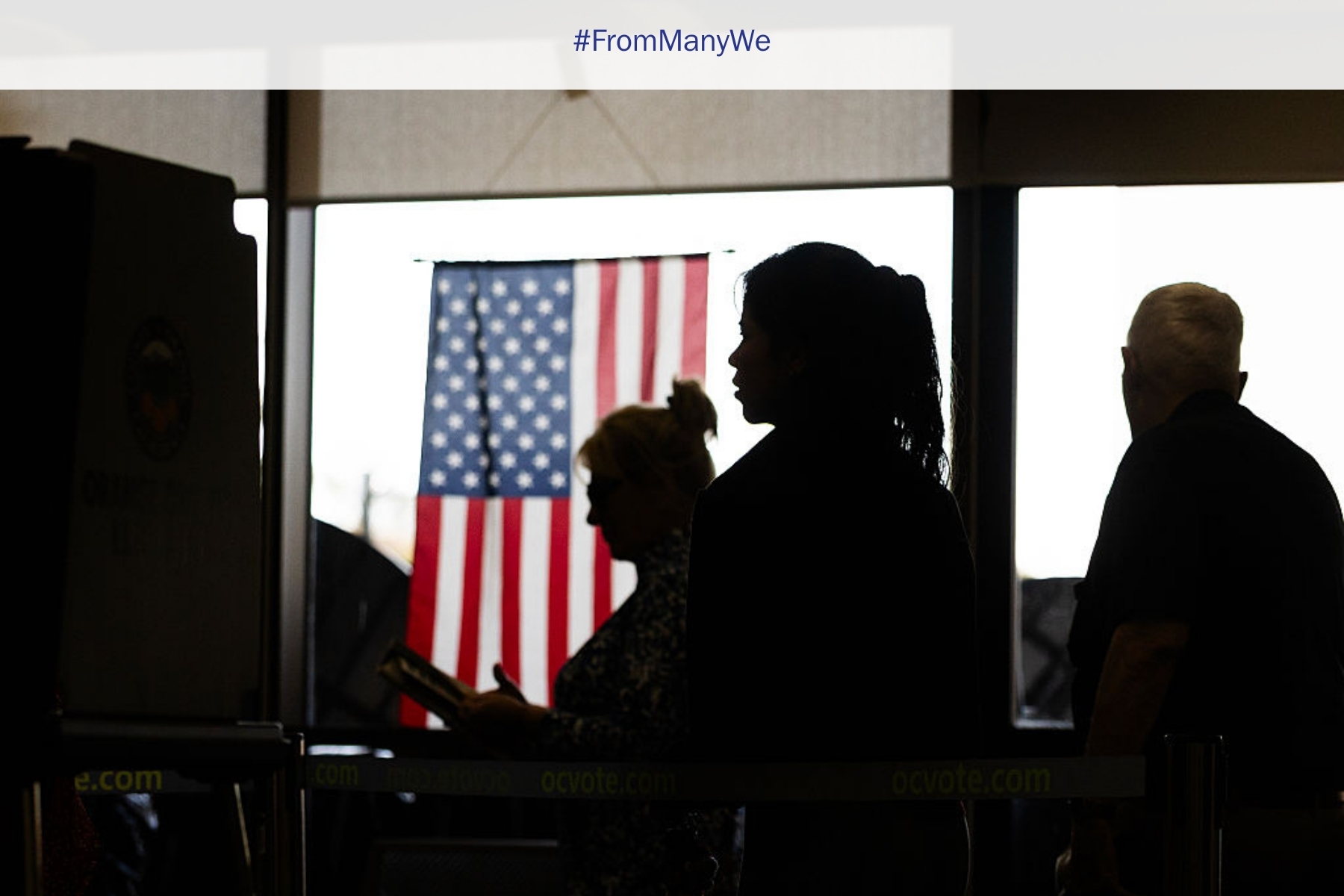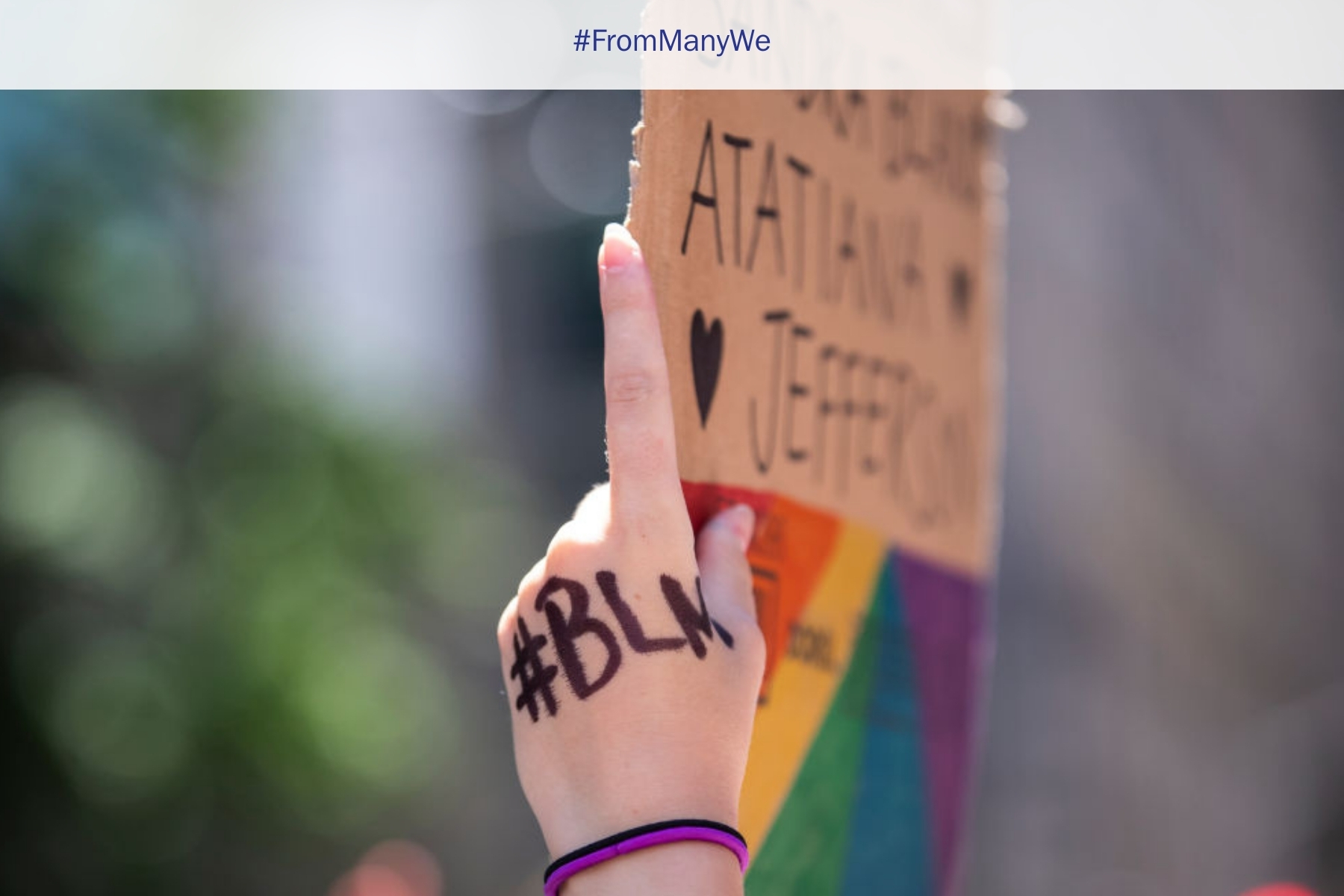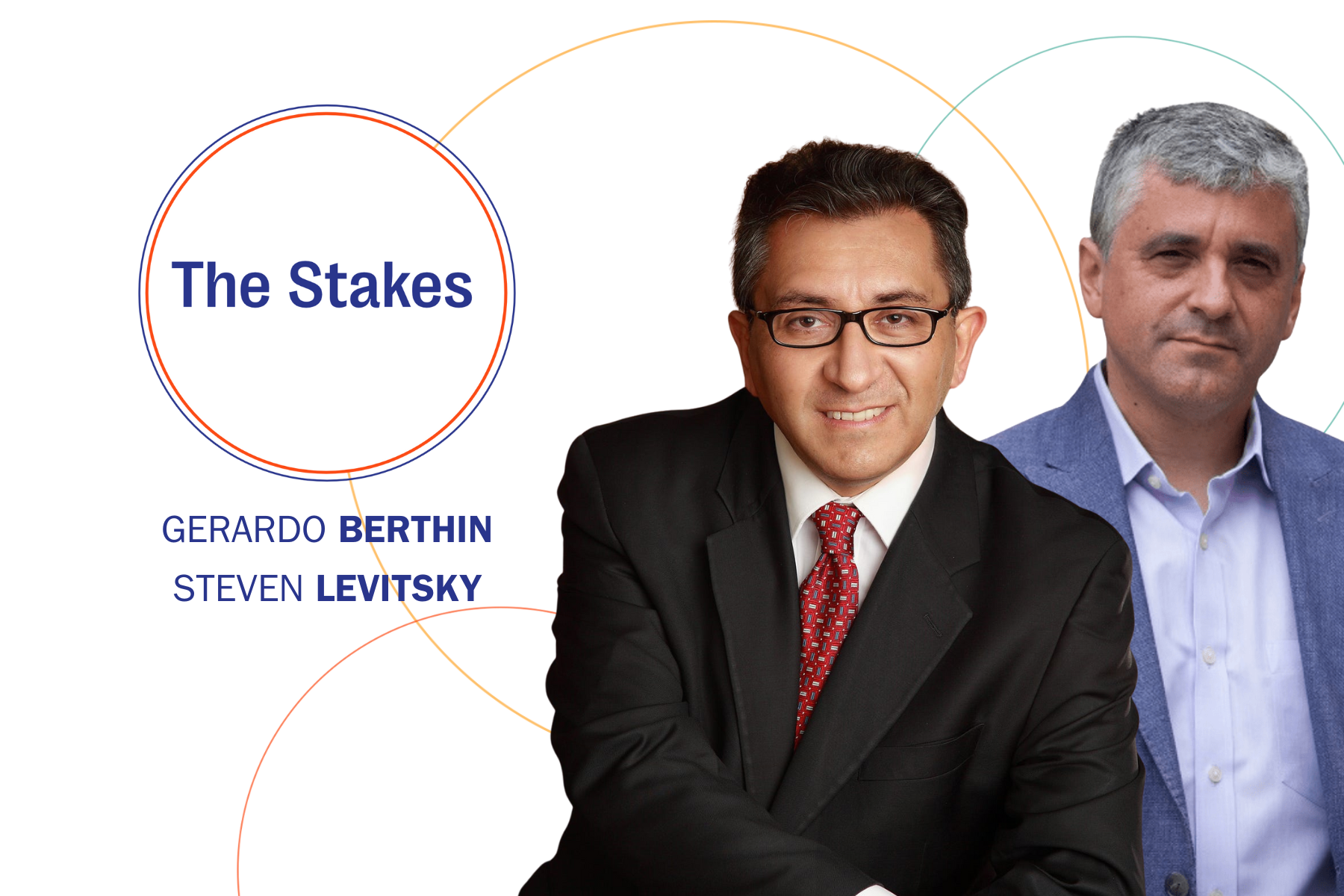How to Defend Democracy on Tax Day

It's tax day in America. Taxes are a basic function of the government, taking in revenues that will then be disbursed through a variety of functions and programs—it's like the government breathing.
Paying taxes is a patriotic duty: the membership dues for democratic society. But it's even harder than usual this year to see our hard-earned dollars going to the United States Treasury. No one on either side of the political aisle seems to think our governmental institutions are functioning efficiently and effectively.
Moreover, this year's tax day falls in the midst of a constitutional crisis. Our president, elected by a slim margin, is ignoring court orders, seizing powers from Congress, and destroying the long-standing norms of independence in federal administration. It's important to pay attention to Trump's attack on the independent institutions that might hold him to account. But these institutions are also well-chosen targets for a crusading populist hero. Tax day is an opportunity to remind ourselves that this administration's attacks on democracy serve an agenda that will benefit wealthy oligarchs more than ordinary citizens.
Trump Serves Economic Elites
During his first administration, Trump's most significant legislative achievement was the Tax Cuts and Jobs Act of 2017—a large, unfunded tax cut with benefits skewed to the wealthy (almost two-thirds of the benefits of the tax cuts went to the top 20% of income earners). It wasn't very popular. In polls at the time, only 29% of Americans supported the tax reform, with nearly twice as many opposed.
The GOP budget for Trump's second term has yet to be fully determined. But House Republicans did pass a bill calling for $5 trillion in tax cuts and $1.5 trillion in spending cuts (concentrated in social programs like Medicaid). Overall, Trump's budgetary priorities will have the effect of taking from the poor and giving to the rich.
The newest tax cuts likely won't be any more popular in 2025 than they were in 2017. Trump is posing as an elite-smashing populist, but serving oligarchs is core to his governing agenda. Advocates for democracy should be careful to avoid burnishing his populist appeal.
Don't Get Trapped Defending the Status Quo
As a politician, Trump has always played the outsider, promising to "drain the swamp" of Washington corruption. Elon Musk's Department of Government Efficiency (DOGE) has already fired tens of thousands of federal employees, in many cases violating civil service protections to do so.
For those like me who believe these actions pose an immediate threat to American democracy and to valuable services that the US government provides, it is tempting to leap to the defense of everything that Trump is seeking to destroy. But this means that Trump's opponents sound like they were fully content with every part of the US government and democracy as it existed circa 2024. Meanwhile, Trump positions himself as the candidate of change who is willing to take on all the institutions that the American people have lost faith in.
The irony is that Trump's critics have long voiced concerns with the ways government has served the wealthy and powerful, and, in many cases, they have practical suggestions to remedy them. But critiquing the wrecking ball that Trump is taking to the federal government can make it appear that they believed the existing structures had solid foundations all along.
To offer just one example, Trump has already fired 6,000 IRS employees and has threatened to reduce the agency's workforce by as much as half. This has provoked outrage from experts and the media who point out (correctly) that this will decrease the quality of service that American taxpayers receive while also impeding audits on high-income individuals and corporations.
But the administration's exacerbation of the inequities of the American tax system is also an opportunity to highlight preexisting problems. It is more difficult, confusing, and expensive to file taxes in the United States than in almost any peer country, and the tax preparation industry spends significant money and effort lobbying politicians to keep it that way. The tax burden in the US falls most heavily on the middle class, while the wealthiest Americans exploit a range of strategies and loopholes—both legal and illegal—to pay a lower effective tax rate than those with a fraction of their earnings. In some cases, the richest Americans pay no federal taxes at all.
Taxes pay for the many important benefits and services that Americans rely on. But people overwhelmingly feel that the system of taxation is skewed. More than 80% of Americans say they are bothered by corporations and the rich not paying their fair share. Pro-democracy advocates must demonstrate that they understand this public dissatisfaction and do more than simply stand against Trump's attacks on the existing system. A delicate rhetorical balance must simultaneously argue for practical, positive change while critiquing the unhelpful, regressive damage that Trump is causing. For the IRS, positive reforms could include emulating the relative ease of filing taxes in other countries, publicizing and building on the agency's substantial role in reducing poverty, or instituting taxes not only on income but also on wealth.
Democracy Is the Answer
Trump's promise to American voters is that he will attack the institutions that they distrust and resent. After all, no one loves the IRS. But beyond the momentary schadenfreude of seeing government bureaucrats and other unpopular elites brought low, Trump has little to offer his supporters. He rarely has a plan to reimagine or rebuild the institutions he is dismantling. For the IRS, as for so many other government agencies in Trump's crosshairs, the end result will be decreased capacity. Taxes will be lower, and cheating will be easier (especially for the wealthy, on both counts). Democratic government, the only institution directly responsible to the people, will have fewer resources.
But the alternative to democratic collectivism isn't just individualism—it's also tyranny. It's no coincidence that the same president who is exerting unconstitutional authority to eliminate federal agencies and departments is also unconstitutionally subjecting legal residents to arrest and deportation for the offense of exercising their free speech rights. It shouldn't be surprising that the same politicians who want to cut benefits for poor people also want to increase the barriers that prevent them from voting.
Private institutions are a poor substitute for the government's focus on the wellbeing of all citizens. Through progressive taxation and social spending, government is the only institution that demands greater contributions from those who benefit the most from our society and provides extra support from those who need it most. (At least this is true in theory; tax loopholes for the wealthy and corporate welfare are all-too-common perversions of our system that should be rectified.)
Government is a tool to address the concerns we share in common, and it is only through a genuinely inclusive democracy that it can serve the interests of all citizens. Americans deeply value security, prosperity, and freedom, and these can only be achieved by building a better society. Individualism can provide no guarantee. It is only through the hard and sometimes frustrating work of democracy—seeking compromise—that we can build, maintain, and improve public institutions. Destroying those institutions, as Trump now threatens to do, is a false solution.
Democracy's Best Defense: Ensure It Works for All
Defending democracy at this critical point in American history requires more than abstract arguments about the virtues of our constitution. American citizens have lost faith in essential elements of the system, and they need to be reminded of the practical ways that democracy supports things they do value—including liberty and material abundance.
In our diversifying era, some (mostly White) voters are trying to pull the ladder up behind them by dismantling the public institutions that have undergirded American security and prosperity for decades. Pointing out the threat that Donald Trump poses to American democracy has not been a successful strategy for his opponents. But even a flawed democracy provides some measure of accountability, and the alternative is trusting a billionaire president with manifest conflicts of interest to put the country's welfare above his own. No strongman is going to fix the problems of the system for us; anyone who promises to cut through the red tape of democratic procedure cannot be trusted to care for the interests of all Americans. On this year's tax day, let's remember that democratic government belongs to all of us, and that it is our right and our responsibility to call upon our leaders and our institutions to serve the public good.
Alex Lovit is a senior program officer and historian at the Kettering Foundation. He is the host and executive producer of the Kettering Foundation podcast The Context.
From Many, We is a Charles F. Kettering Foundation blog series that highlights the insights of thought leaders dedicated to the idea of inclusive democracy. Queries may be directed to fmw@kettering.org.
The views and opinions expressed by contributors to our digital communications are made independent of their affiliation with the Charles F. Kettering Foundation and without the foundation’s warranty of accuracy, authenticity, or completeness. Such statements do not reflect the views and opinions of the foundation which hereby disclaims liability to any party for direct, indirect, implied, punitive, special, incidental, or other consequential damages that may arise in connection with statements made by a contributor during their association with the foundation or independently.








